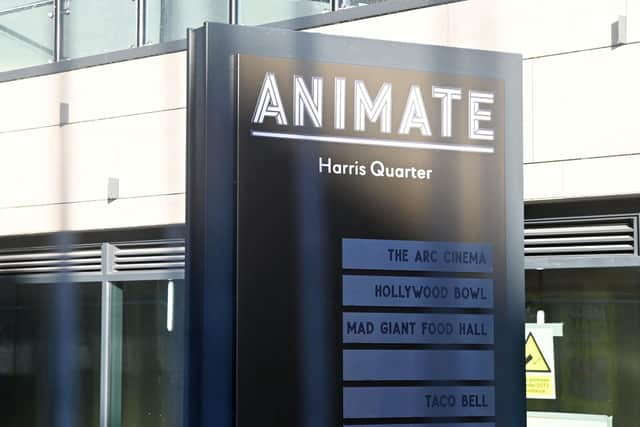
Lancashire residents are being made “poorer” by “unachievable” attempts to hit net zero targets by 2050, according to the new environment cabinet member at Lancashire County Council.
Reform UK’s Joshua Roberts criticised the government’s legally binding carbon reduction commitments – and also left unanswered a direct question about whether he even accepted “the science” behind climate change.
He was speaking at a meeting of the full council in response to a request from Labour group leader Mark Clifford for an update on what the local authority was doing to “support” the nationwide 2050 goal.
Having listed a series of energy reduction and sustainable transport projects, County Cllr Roberts seized the opportunity to take aim at net zero – the aim to ensure, by the middle of the century, that the total volume of greenhouse gases in the atmosphere has stopped growing, in order to combat climate change.
“Since the UK’s net zero targets were enshrined in law, household energy bills have climbed sharply, partly because the cost of subsidising offshore windfarms, bioenergy plants and hydrogen trials are forced on[to] every consumer’s bill,” said County Cllr Roberts, who represents the Fylde East division and is also responsible for rural affairs and communities on the authority.
“Low income families who spend a larger share of their income on energy have felt these price hikes most severely – eroding living standards and widening fuel poverty gaps.
“Heavy manufacturing sectors have complained of soaring operational costs and regulatory uncertainties. Companies in steel, ceramics and chemicals face stiff competition from abroad where energy remains cheaper and environmental regulations less oppressive.”
He also blasted the controversial Morgan and Morecambe windfarm project off the Fylde coast – which, if approved, would require major on-shore underground cabling operations across the borough – for threatening to “destroy over 600 acres of cherished greenbelt, productive farmland and vital wildlife habitats”.
County Cllr Clifford said he had been left “confused” by the response, because county council leader Stephen Atkinson had said at a separate cabinet meeting last week that he thought “the climate science [around global warming] is correct”.
County Cllr Roberts was asked whether he, too, “believe[d] in the science of climate change”. However, the cabinet member instead returned to his critique of net zero.
“We don’t want to set targets which are unachievable, at the cost of the household resident. This net zero target is making us poorer.
“I agree we need to look at alternative sources which are low carbon. Small modular nuclear reactors are the way forward,” he said.
County Cllr Roberts was twice more pressed by Labour county councillor Samara Barnes to respond to the specific question about his belief, or otherwise, in the climate science with a “yes or no” answer – but twice failed to do so before adding:
“Reducing energy use and emissions from buildings is a priority, but it’s also one of the most complex…areas of decarbonisation.. We shouldn’t make the residents of Lancashire poorer [for an] unachievable goal, which is just ridiculous.”
The Climate Change Committee, the government’s statutory adviser for climate change, said in its progress report on the net zero target last year that the new Labour government would “have to act fast to hit the country’s commitments”. It noted that low-carbon technologies are becoming cheaper, although uptake remains low, and said there was an increasing need to focus on how the UK adapts to climate changes that have already happened.
Reform-controlled West Northamptonshire Council this week ditched local net zero targets – common at local authorities across the country – which were set by a previous regime
However, Lancashire County Council had not set any such specific ambitions – nor declared a climate emergency – under the previous Conservative administration, which was in control for eight years until May’s local elections.
Instead, the authority had pledged, in 2020, to “transition” the local economy away from its reliance on carbon by the end of the current decade.
That commitment was secured by Green Party group leader Gina Dowding, who remains in the same role today.
Speaking to the Local Democracy Reporting Service about County Cllr Roberts’ criticism of net zero and some forms of renewable energy, County
Cllr Dowding questioned why Reform was concerned about subsidies for the likes of wind and solar projects, but were “willing to allow [them for] the fossil fuel sector”.
She added: “There are direct and indirect subsidies provided to the sustainable, non-polluting renewable energy sector – but government subsidies in the form of tax relief to fossil fuel industries are costing us even more. These include corporation tax relief on North Sea oil and gas investments.
“Between 2015 and 2023, the fossil fuel sector received roughly £20bn more in total support than renewables – £80bn versus around £60 billion.
And a fifth of the money given directly to the fossil fuel sector was to support new extraction and mining.
“It is not difficult to work out why Reform UK do not want to challenge oil and gas subsidies – they are financed by backers with huge interests in that sector.
“Reform should unreservedly commit to much-needed action to make us more resilient to climate impacts, as well as to measures to reduce polluting emissions from buildings and homes, transport and industry.
“Greater flood resilience, warm homes with lower bills and food security would benefit all residents in Lancashire,” County Cllr Dowding said.
County Cllr Atkinson said at the cabinet meeting last week that he supported schemes such as home insulation, but not if they were “paid for on the back of everyone else’s energy costs”. He added that any efforts by the UK to tackle global warming without corresponding attempts being made by the United States, China and India would amount to “nothing”.
He agreed with the need for measures to make the UK more resilient to baked-in climate change, but also noted that the country’s energy prices were five times higher than in North America and seven times more expensive than in China – differentials which he said were “destroying our industry”.
“People say the answer to this is to have sustainable energy – [but] it isn’t, in my opinion. You [then] have…have two energy networks, so even [if a] gas powered station…has to work for [only] three hours a week, when the sun doesn’t shine or the wind doesn’t blow, you have to have it fully staffed 24/7 throughout the whole year.
“You have to have the same capital, the same maintenance – and that’s why we have these exorbitant energy costs that are killing our industrial base and shipping that carbon to other countries where they have less stringent regulations,” County Cllr Atkinson said.
However, County Cllr Dowding contended at the same meeting that the high cost of electricity in the UK was because it was pegged to the wholesale gas market.
“So I agree with you on one level – the energy sector and the pricing is really out of kilter with where it needs to be,” she said.

 King Charles visits Lancashire in busy days of public engagements
King Charles visits Lancashire in busy days of public engagements
 Father admits to killing baby son in Fulwood
Father admits to killing baby son in Fulwood
 Preston’s Animate leisure complex to mark first anniversary
Preston’s Animate leisure complex to mark first anniversary
 Investigation into death of Preston student continues
Investigation into death of Preston student continues
 King Charles visits Lancashire
King Charles visits Lancashire








